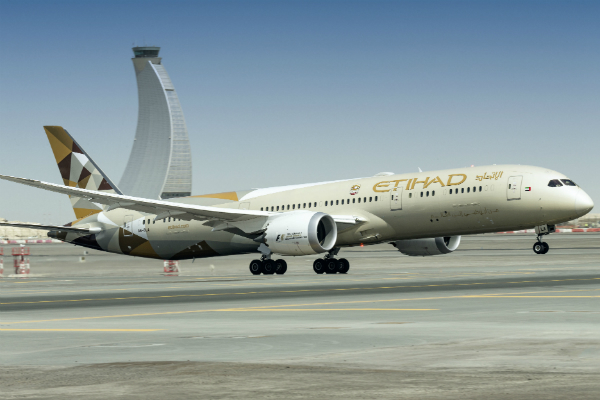US requires tougher cargo screening from Middle East airports
GCC carriers Saudia, Emirates and Etihad are among those subject to stricter security measures

The US Transportation Security Administration (TSA) said on Monday it will require six Middle Eastern carriers to undergo enhanced cargo screening as part of an effort to raise global aviation security.
The emergency amendment covers carriers in five countries flying out of seven airports and focuses “on last points of departure locations where the threat is greatest,” TSA said in a statement.
It comes as the Trump administration has been working to increase international airport security.
The carriers and airports are: Egypt Air operating out of Cairo International Airport, Royal Jordanian operating out of Queen Alia International Airport, Saudia operating out of King Abdul-Aziz International Airport and King Khalid International Airport, Qatar Airways operating out of Doha International Airport and Emirates and Etihad operating out of Dubai International Airport and Abu Dhabi International Airport.
All cargo originating from those airports will have to be screened and secured under Air Cargo Advance Screening protocols. The TSA said most of the requirements were already being voluntarily applied by airlines around the world.
Carriers must submit advance air cargo data to US authorities. The programme uses US Department of Homeland Security “threat information and other data to employ a risk-based approach to improve air cargo security through targeted vetting”.
A Royal Jordanian spokeswoman said the airline had “received this new amendment from TSA to be implemented on air cargo shipments, and we were given one month period to apply the new amendment”.
Emirates, Qatar Airways, and Saudi Arabian Airlines did not immediately respond to requests for comment.
In September, TSA issued a new security directive requiring enhanced screening of cargo from Turkey after an incident in Australia.
In July, an Australian man sent his unsuspecting brother to Sydney airport to catch an Etihad Airways flight carrying a home-made bomb disguised as a meat mincer built at the direction of a senior Islamic State commander.
High-grade military explosives used to build the bomb were sent by air cargo from Turkey.
In October, new security measures including stricter passenger screening started taking effect on all US-bound flights, including some short security interviews with passengers at check-in or the boarding gate.
In July, the United States lifted restrictions on carry-on electronic devices on planes coming from 10 airports in eight countries in the Middle East and North Africa.
